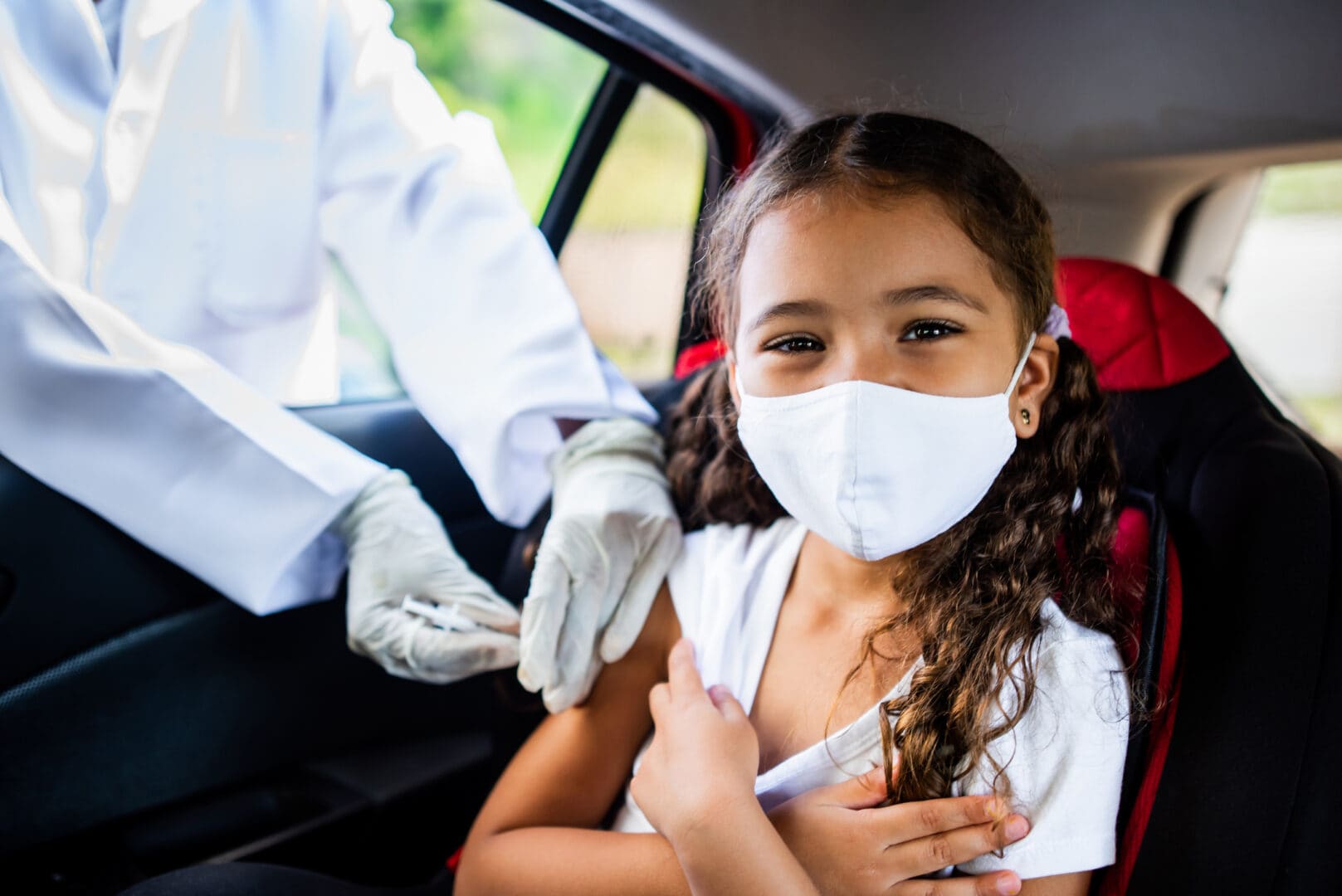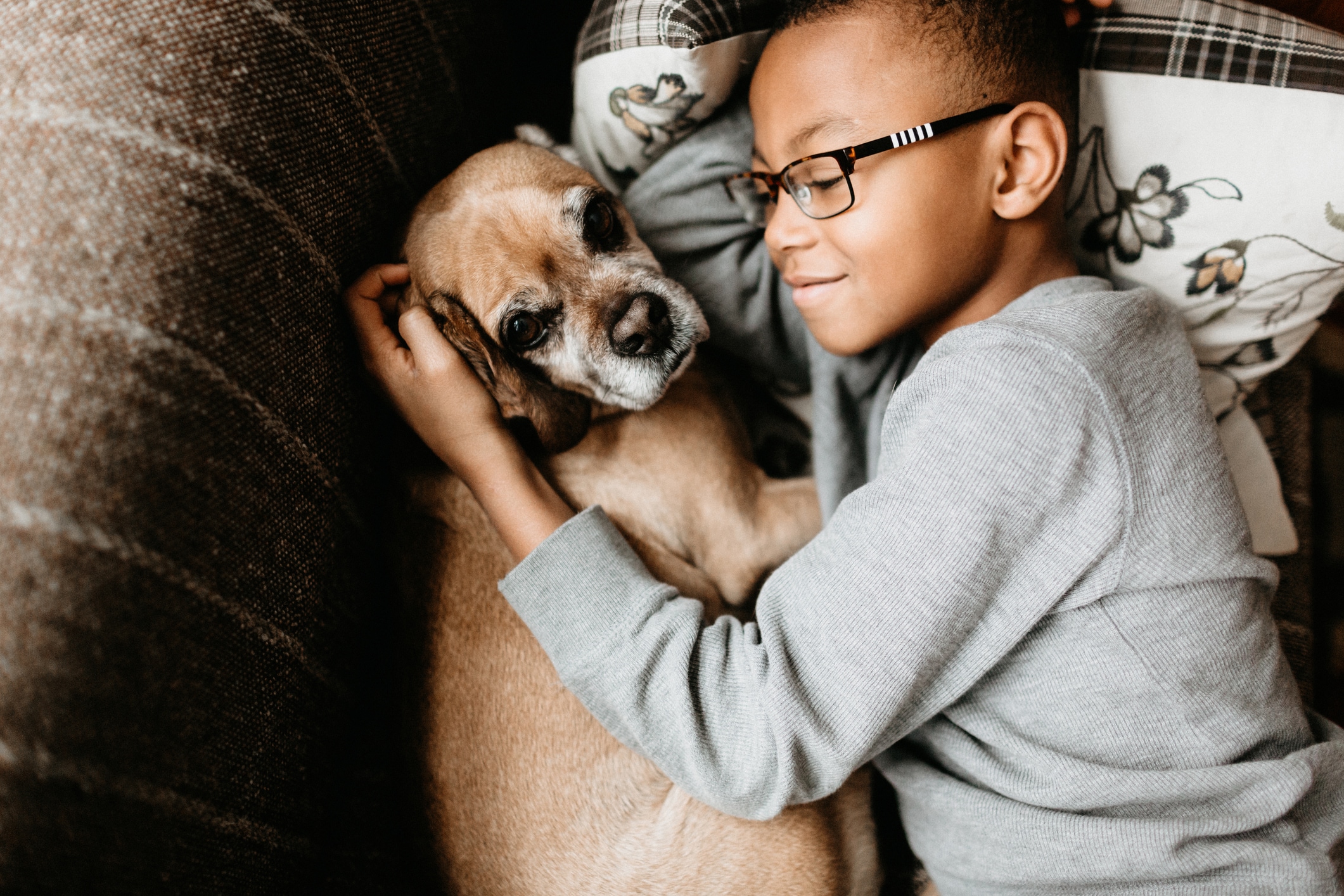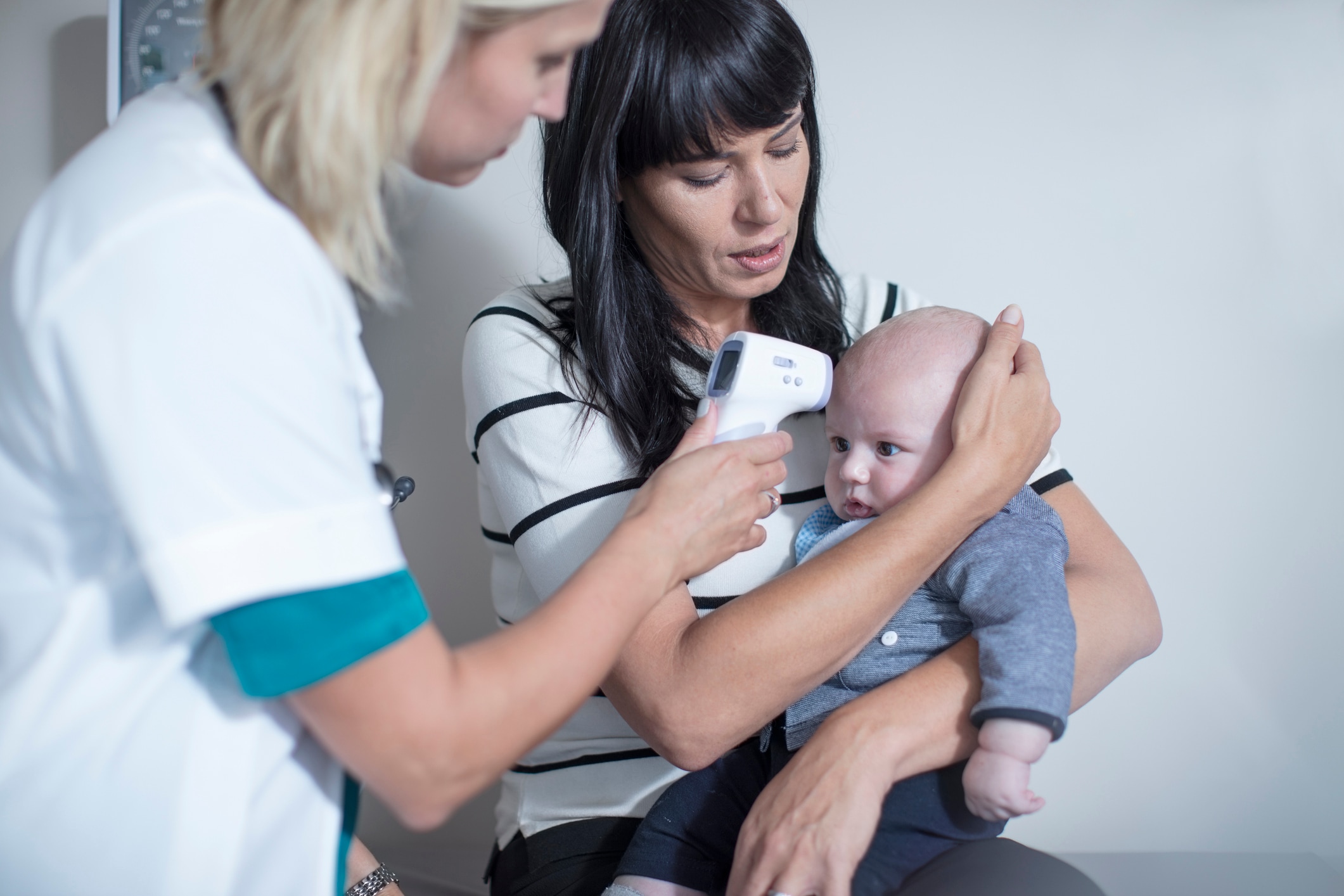This week, Pfizer and BioNTech released news many parents and caregivers have been waiting for: Their lower dose COVID vaccine has been proven to be safe and effective for kids ages 5 to 11.
The wait for vaccines has been taxing for many parents, especially since COVID cases in kids have increased 240% since July. Ashley Guzman, a mom of two from Santee, California, says her 9-year-old is in her third week of quarantine from school due to repeated COVID exposures. “Being at home missing school is affecting her emotionally, and she does not learn well on a distance learning platform,” Guzman says. “Myself, her dad and her 14-year-old brother have been vaccinated. I’m very eager to get her vaccinated as well.”
Child doses of the vaccine reportedly show “robust neutralizing antibody responses.” The next step is for the vaccine makers to apply for emergency use authorization from the Food and Drug Administration (FDA). Here’s what parents and caregivers need to know about COVID vaccines for kids and when they can expect children to be able to get the shots.
How long until 5- to 11-year-old kids can be vaccinated?
Dr. Bill Gruber, Pfizer’s senior vice president of vaccine clinical research and development, says the company will submit the results of their clinical trial to the FDA and seek emergency use authorization for the shots before the end of September.
While there is no definite timeline for how long that decision-making process can take, Dr. Peter Marks, a research director with the FDA, tells USA Today authorization could come in a matter of “weeks, not months.”
Dr. Anthony Fauci, the director of the National Institute of Allergy and Infectious Diseases, tells MSNBC there’s “a really good chance” the vaccines could be available before Halloween.
What is emergency use authorization for vaccines?
Emergency use authorization is the process of approving a vaccine or treatment for use during a public health emergency, but it is not the same thing as full FDA approval.
“For full authorization [of a vaccine], the FDA typically wants to know years of effectiveness data,” says Dr. Amy Baxter, a pediatrician and the chief medical officer and CEO of Pain Care Labs in Atlanta. “Since that can’t be done quickly, proving safety and short-term effectiveness is what is needed for emergency use authorization.”
In August, the FDA granted full approval of the Pfizer and BioNTech COVID vaccine in people aged 16 and older; however, vaccines for those ages 12 to 15 are still under emergency use authorization-only. In order for kids under 12 to be vaccinated, the FDA will need to extend their emergency use authorization of the vaccines to include younger age groups.
Once the FDA has granted emergency use authorization, the Centers for Disease Control and Prevention’s (CDC) Advisory Committee on Immunization Practice will meet to determine clinical recommendations for administering the vaccines.
Is the COVID vaccine safe for kids?
Some adults have been divided over the safety of COVID vaccines, and those questions may linger as vaccines are authorized for younger kids, but experts say the data so far shows the vaccines are safe.
The Pfizer and BioNTech trial includes 2,268 children ages 5 to 11 who received a two-dose regimen of the COVID vaccine administered 21 days apart. During the trials, children were given a 10-microgram dose of the vaccine, which is smaller than the 30-microgram dose currently used in people ages 12 and older.
“The safety profile and immunogenicity data in children aged 5 to 11 years vaccinated at a lower dose are consistent with those we have observed with our vaccine in other older populations at a higher dose,” Dr. Ugur Sahin, CEO and co-founder of BioNTech says in a press release.
Some may be concerned about the potential risk of myocarditis, or inflammation of the heart, which has been linked to the COVID vaccine for those over 12 in rare cases. A Pfizer spokesperson tells CNN there were no cases of myocarditis reported during the trial for kids ages 5 to 11. Additionally, Baxter says the risk of myocarditis is far higher for those who get sick with COVID than for those who get vaccinated.
“We know people who catch the virus are about 18 times more likely to get heart inflammation in the next two months, with the young and those over 75 most at risk,” Baxter says. “We also know that of six million people vaccinated, about 350 teenage boys and young men got heart inflammation after the vaccine.”
Baxter recommends vaccination not only because it’s safe but also because there is still so much to learn about COVID-19. ”For scientists, one of the biggest reasons to avoid catching COVID is because we don’t know what else this virus will do to brains, hearts and lungs down the line,” Baxter says.
Nicole Skarke, a mom of one from McKinney, Texas, whose child is diabetic, says she feels comfortable getting the vaccine for her son and is “eagerly awaiting” its authorization. “My son isn’t necessarily at higher risk for contracting COVID, but he is at high risk for complications if he does get sick,” Skarke says. “Anything to help alleviate the illness would be fantastic.”
What if my child is afraid of shots?
Many kids hate getting shots, and the COVID vaccine will require two doses. How can you help your kids when the time comes?
Baxter says about 63% of kids are afraid of needles, according to her research, and it can take three good experiences to reduce their fear to a manageable level. There are a number of devices and creams on the market to help reduce pain from shots. Baxter invented a device called the Buzzy, which uses cold sensations and vibration to help eliminate vaccine pain.
Baxter also recommends engaging and distracting kids by asking them questions. “Ask a visual finding or counting question about something hidden in the room,” she says. For example, ask them how many striped fish there are if there is an ocean photo in the room.
Misty C., a mom of two from Allen, Texas, says talking to her kids about why it’s important for them to get vaccinated has also helped alleviate some of their anxiety. “My girls probably ask weekly when their turn will be,” she says. “They know and understand that vaccines can help protect themselves and those around them.”





